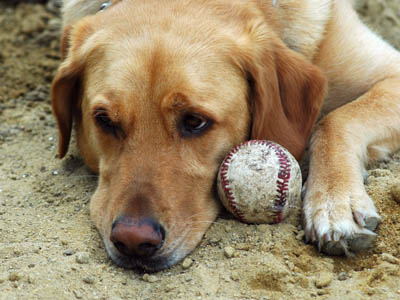
Blue Cross of India was founded in 1964. It is the largest animal welfare organization in India with five animal shelters, hospitals, out-patient clinics and ambulance services in Chennai, Kanchipuram and Thiruvallur Districts of Tamilnadu. Blue Cross introduced ABC (Animal Birth Control) for street dogs in 1964 – the world’s first. Blue Cross, in collaboration with Saraswathi Kendra Learning Centre for Children with autism, dyslexia, learning disabilities and Attention Deficit Disorders (A.D.D.), pioneered ANIMAL ASSISTED THERAPY for autistic children in India since 1996. With the help and coordination of Animals Asia Foundation (AAF), Dr. Dog was introduced in India in 2001. Assessors are trained to approve potential Dr. Dogs, while the Blue Cross provides placement and co-ordination services for Dr. Dog in special schools and old age homes in Chennai.
Animals Asia Foundation is a government registered charity based in Hong Kong which has rescued several suffering Moon Bears from bile farms and has been fighting the consumption of cats and dogs. It introduced Dr. Dog in Hong Kong, China, Philippines, Japan, India and Taiwan, with over 300 dogs visiting hospitals, schools, etc. Dr. Dog has been functioning in Chennai, Bangalore, Tirupati, Visakhapatnam and Ludhiana.
Saraswathi Kendra Learning Centre for Children is the first full-time school in India for children with Autism, Learning Disabilities, Dyslexia & A.D.D., established by the C.P. Ramaswami Aiyar Foundation in Chennai in 1985. It provides assessment, therapy and education services and is affiliated to N.I.O.S. for Std. X and Std. XII and vocational education. Saraswathi Kendra has been a leader in the use of innovative therapies such as art, dance and movement, and puppetry. In collaboration with the Blue Cross, Saraswathi Kendra pioneered the use of Animal Assisted Therapy for autistic children in India in 1996.
DR. DOG VISION : “Our emphasis on the “individual” sees our Dr. Dog ambassadors promoting animal welfare through people welfare and pioneering the right of all animals to be treated with respect and compassion…. Through innovative ‘hands on’ programmes, our vision progresses the ideal that empathy for one animal can evolve into empathy for an entire species.”
Animal Therapy is of two types:
ANIMAL ASSISTED ACTIVITIES – Improve the overall quality of life rather than change or develop a particular behaviour
ANIMAL ASSISTED THERAPY – Works with animals in a planned way to increase desirable behaviour and / or abilities in people, or decrease undesirable behaviours.
There are very strict rules for carrying out a Dr. Dog programme. The basic requirement for a potential Dr. Dog is that it must be at least two years old and healthy, both males and females MUST be de-sexed (to reduce aggression and tension), vaccinated, have a calm and friendly nature, basic obedience skills, clean and leashed at all times. Labradors and Retrievers make good Dr. Dogs, although several Mongrels and some specific breeds have also been successful.
Dr. Dog must respond to basic commands like SIT, STAY, COME, LEAVE, must be house-trained, must walk beside trainer, and must also be under control in noisy and crowded places. Children who are afraid of dogs should not have a dog forced on them. Reassure them that the dog is safe and friendly and do not allow the dog to get near till the children are ready.
The dog becomes a medium through which you can “ASK QUESTIONS”, “SPEAK THROUGH THE DOG”, “ASK THE CHILD ABOUT THE DOG”, “EMPOWER THE CHILD” and “ENCOURAGE COMMUNICATION”.
Children must be encouraged to talk freely about the dog and, at the same time, be aware of the dog’s needs and feelings. However, discipline and acceptable behaviour must be very clearly communicated to the child. If the dog shows any stress, leave him at home.
From the experience of Saraswathi Kendra, there have been several benefits for the autistic children including increase in initiative, in verbal communication, involvement in activities and indications of pleasure, increased co-operation with teachers, and decrease in negative and stereotypical / repetitive behaviour, including temper tantrums. Animal therapy engages their attention in a way that conventional therapy cannot. They score higher on measures of empathy, self-esteem and self-concept; cognitive and social development is helped, with lengthening attention spans, co-operation and greater focus in the classroom.
Dr. Nanditha Krishna
Director
The C.P. Ramaswami Aiyar Foundation
1 Eldams Road, Chennai 600 018
Tel: 044 – 24341778, 24346526
Fax: 044 – 24351022
E-mail: nankrishna@vsnl.co
